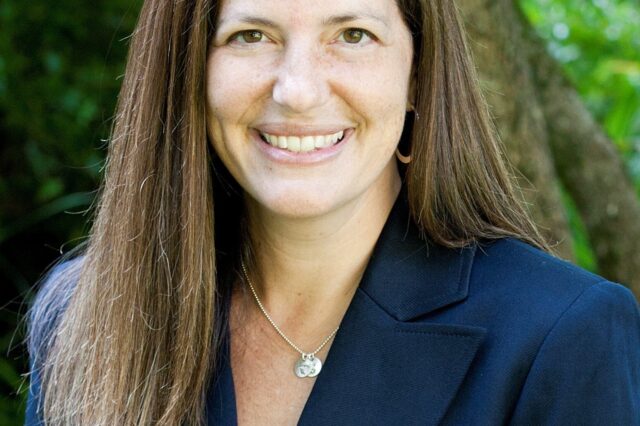$1.6 million grant to help University of Florida researchers improve access to Type 1 diabetes care

Not all patients with Type 1 diabetes have access to the health care resources that can optimize their treatment.
Now, researchers at the University of Florida Diabetes Institute and Stanford University have been awarded a $1.6 million grant by The Leona M. & Harry B. Helmsley Charitable Trust to study ways to improve access to care for underserved adults and children living with the disease.
The 18-month pilot grant will support the work of Michael J. Haller, M.D., a professor and chief of pediatric endocrinology in the UF College of Medicine, part of UF Health, and Ashby Walker, Ph.D., the director of health equity initiatives at the UF Diabetes Institute, along with collaborators at Stanford.
Living with and managing Type 1 diabetes can be difficult under the best circumstances. But for some patients, access to diabetes specialists can be particularly challenging. The researchers will work with primary care health providers in Florida and California to address the racial, socioeconomic and geographic disparities that affect health outcomes among these patients.
“Our hope is to reach adult and pediatric Type 1 diabetes patients who may not see an endocrinologist for routine care but who could really benefit from the expertise of those specialists,” Walker said.
Type 1 diabetes is an autoimmune disease that results in destruction of insulin-producing cells in the pancreas.
“Some patients, particularly lower income urban and rural residents, may lack optimal access to endocrinologists and other health care specialists,” Haller said. “In those cases, patients may be getting insulin from their family doctor but doing little or nothing else to manage their diabetes. The American Diabetes Association recommends visits to a specialist once every three months.”
“Many people are living with very bare bones support for their diabetes management. We want to see if we can empower primary care doctors to provide more meaningful diabetes care for their patients. Given the shortage of endocrinologists and the need to increase access, the ultimate goal of this effort is to ensure better access to diabetes care for everyone living with Type 1 diabetes,” Haller said.
That’s where the grant comes in: The researchers will work with primary care physicians and patients who aren’t using an endocrinologist to determine what they need and the health care barriers that exist. Health care providers who treat Type 1 diabetes patients will receive virtual training and tele-education from the diabetes “hubs” at UF and Stanford. The physicians also will get real-time help with challenging medical decision-making issues from diabetes professionals as well as a diabetes care liaison assigned to their clinic and opportunities to enroll their patients in research projects and initiatives at the hubs.
The grant will be the first time that the Extension for Community Health Care Outcomes model, also known as Project ECHO® will be applied exclusively to Type 1 diabetes. The ECHO model aims to provide best practice care for underserved people worldwide by giving clinicians additional knowledge and support to manage patients with complex conditions. It has been adapted for a range of diseases, including endocrinology, HIV, hepatitis C and chronic pain.
Haller said the grant is being implemented in California and Florida because those states have a large and diverse group of underserved patients. Type 1 diabetes patients who lose contact with specialty providers are at risk of not having access to the best medical care and devices such as insulin pumps and continuous blood glucose monitoring — something that researchers hope to address with the grant.
“Those patients end up doing what’s necessary to keep themselves alive but they are often not able to maintain optimal control of their diabetes,” Haller said.
Collaborating researchers at Stanford University include David Maahs, M.D., Ph.D., a professor and chief of pediatric endocrinology and Nicolas Cuttriss, M.D., an assistant clinical professor in the division of endocrinology and diabetes. Cuttriss joins the team after serving as the pediatric endocrinologist for the Endocrinology Project ECHO at the University of New Mexico. The ECHO Institute at the University of New Mexico will also provide additional technical support for the grant.
Primary care providers can contact the researchers at hallemj@peds.ufl.edu or afwalker@ufl.edu if they are interested in participating in the Type 1 Diabetes ECHO program.
About the Helmsley Charitable Trust
The Leona M. and Harry B. Helmsley Charitable Trust aspires to improve lives by supporting effective organizations in health and select place-based initiatives. Since 2008, Helmsley has committed more than $2 billion for a wide range of charitable purposes. For more information, visit www.helmsleytrust.org.
About the author
